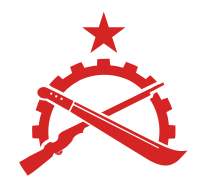

![]() by Analeuthocosia » Sat May 07, 2022 11:01 am
by Analeuthocosia » Sat May 07, 2022 11:01 am

![]() by Analeuthocosia » Sat May 07, 2022 11:03 am
by Analeuthocosia » Sat May 07, 2022 11:03 am

![]() by Analeuthocosia » Sun May 08, 2022 10:35 am
by Analeuthocosia » Sun May 08, 2022 10:35 am

![]() by Holy Marsh » Mon May 09, 2022 6:34 pm
by Holy Marsh » Mon May 09, 2022 6:34 pm

![]() by Analeuthocosia » Mon May 09, 2022 8:42 pm
by Analeuthocosia » Mon May 09, 2022 8:42 pm

![]() by South Reinkalistan » Tue May 10, 2022 3:16 pm
by South Reinkalistan » Tue May 10, 2022 3:16 pm


![]() by South Reinkalistan » Tue May 10, 2022 5:28 pm
by South Reinkalistan » Tue May 10, 2022 5:28 pm

![]() by Mokastana » Tue May 10, 2022 6:24 pm
by Mokastana » Tue May 10, 2022 6:24 pm

![]() by Analeuthocosia » Thu May 12, 2022 9:03 pm
by Analeuthocosia » Thu May 12, 2022 9:03 pm


![]() by Analeuthocosia » Fri May 13, 2022 9:57 pm
by Analeuthocosia » Fri May 13, 2022 9:57 pm

![]() by South Reinkalistan » Sat May 14, 2022 9:06 am
by South Reinkalistan » Sat May 14, 2022 9:06 am

![]() by Analeuthocosia » Tue May 17, 2022 6:04 pm
by Analeuthocosia » Tue May 17, 2022 6:04 pm

![]() by Mokastana » Wed May 18, 2022 3:01 pm
by Mokastana » Wed May 18, 2022 3:01 pm

![]() by Holy Marsh » Wed May 18, 2022 6:18 pm
by Holy Marsh » Wed May 18, 2022 6:18 pm

![]() by Severina » Fri May 20, 2022 3:27 pm
by Severina » Fri May 20, 2022 3:27 pm

![]() by South Reinkalistan » Sat May 21, 2022 2:14 pm
by South Reinkalistan » Sat May 21, 2022 2:14 pm

![]() by Analeuthocosia » Sat May 21, 2022 7:18 pm
by Analeuthocosia » Sat May 21, 2022 7:18 pm

![]() by Analeuthocosia » Tue May 24, 2022 1:57 pm
by Analeuthocosia » Tue May 24, 2022 1:57 pm

![]() by Analeuthocosia » Tue Jun 07, 2022 2:15 pm
by Analeuthocosia » Tue Jun 07, 2022 2:15 pm

![]() by Analeuthocosia » Wed Jun 08, 2022 9:20 pm
by Analeuthocosia » Wed Jun 08, 2022 9:20 pm

![]() by Analeuthocosia » Wed Jun 08, 2022 9:29 pm
by Analeuthocosia » Wed Jun 08, 2022 9:29 pm

![]() by Analeuthocosia » Sun Jun 26, 2022 11:24 pm
by Analeuthocosia » Sun Jun 26, 2022 11:24 pm

![]() by Analeuthocosia » Mon Jun 27, 2022 2:53 pm
by Analeuthocosia » Mon Jun 27, 2022 2:53 pm
Advertisement
Return to International Incidents
Users browsing this forum: Arakhkhar, Assassins BrotherHoodd, GreatOceania, Janpia, Kostane, Southeast Marajarbia, Wochaystein
Advertisement